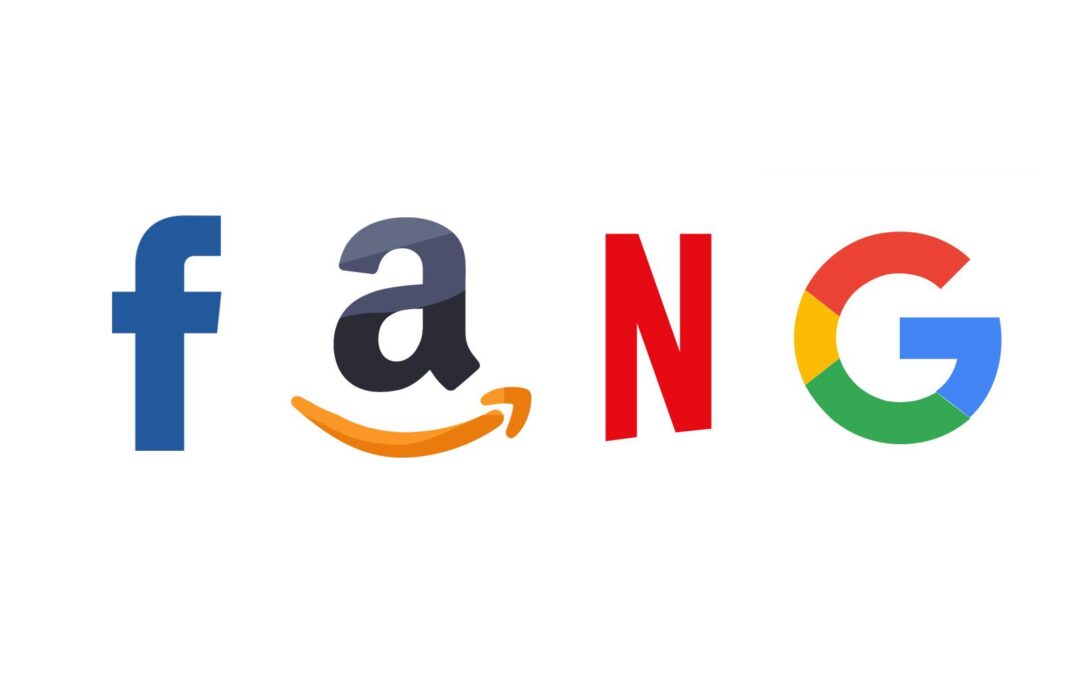Matt Swanson, SVSG managing partner, and Bruderman Brothers Vice Chairman Oliver Pursche, discuss whether the major tech stocks are still worth buying in the second half of the year.
Too high, too expensive, or too fast? The Fab Four, better known as the FANG stocks, Facebook (FB), Amazon (AMZN), Netflix (NFLX) and Google parent Alphabet (GOOGL) are visibly resilient to Chinese market fluctuations. But amidst turbulent market times, are these titan stocks still a good investment despite the broader market’s attitude?
WATCH: Matt discuss a few of his points on FANG stocks amid trade tensions
Disclosure: Matt may own shares of Facebook, Netflix, Amazon or Alphabet.
CNBC’s Jim Cramer is still bullish and believes investors should focus on FANG despite the turbulence.
“If you were going to design four large companies that would be relatively immune to inflation, they’d look a lot like Facebook, Amazon, Netflix, and Alphabet,” Cramer said.
CNBC also reported that as of Thursday’s close, shares of Facebook were up 3 percent at $198.45; shares of Amazon were up a modest 0.34 percent at $1,699.73; shares of Netflix were up 2 percent at $398.39; and Alphabet’s Class A shares were up 2.24 percent, at $1,141.29.
Matt Swanson, SVSG Managing Partner joined the conversation unveiling his position on the tech titans and whether they’re still a safe bet in the second half of the year.
Google investors might want to keep an eye on Waymo—this is the biggest near-term opportunity and there are dramatic upsides to investing here.
A Waymo executive announced last month that the company’s self-driving car fleet would reach 7 million miles of testing.
Less than two months ago, Waymo CTO Dmitri Dolgov made an announcement at the Google I/O conference on May 8 that Waymo reached its last milestone—6 million miles.
“With Uber flat-footed, Google’s next big threat for self-driving primacy is GM/Cruise, but Google has what GM doesn’t: massive amounts of labeled data coming from Google Maps.
“This will allow Waymo to geofence routes. Google knows the 10 percent of routes that are most trafficked by consumers, and by knowing this, Google is better positioned to roll out effective self-driving capabilities in limited but impactful routes while Level 5 technology matures,” Matt said.
Amazon
Amazon is up, and their continued e-commerce expansion has been bullish, to say the least.
With Amazon’s acquisition of Pillpack (a company focused on people who take multiple daily prescriptions, providing them with packaged medications in pre-sorted doses), Amazon has triggered a drop in shares of Walgreens Boots Alliance, Inc.
According to a report from GlobalData, the majority of Americans (54 percent) are happy about the deal, while fewer than a quarter (24 percent) disapprove and the remainder are neutral.
“There’s an explosion in voice device adoption that will make it even easier for consumers to impulse purchase…”
But just as Waymo could push GM out of the way, continued disruption in transportation models will bring nearly real-time delivery. This will change the calculus in consumer purchase decisions for all sorts of basic needs.
Facebook seems to be everywhere and more relevant than ever with its recent rebound off the lows and into new all-time highs.
After Facebook shares hit a 52-week low in March in the wake of the data scandal, the share increase marks a complete turnaround, pushing Facebook’s market value past $588 billion and placing CEO Mark Zuckerberg in fourth place on the Bloomberg Billionaires Index just behind Warren Buffett.
“Even with the new European regulations and privacy fears,” Matt noted, “I’m going long.”
“At the end of the day, consumers fundamentally do not care enough about how their data is used to overcome the need to communicate with their friends.”
Facebook, Instagram, and WhatsApp have an international and intergenerational reach on communication. WhatsApp is a cornerstone of transnational communication, Instagram’s messaging feature has continued to surge in popularity, and Messenger holds the promise of even more revenue opportunities, like a newly rolled out gaming platform.
Matt points out, “Instagram and Whatsapp cemented Facebook’s dominant role in consumer communication,” and it doesn’t look like that will change anytime soon.
Netflix
As for Netflix, content is still king, queen and now jack. Matt explains, “The Disney/Comcast bidding war is a testament to how important content is in the upcoming battle for primacy in entertainment.”
“Netflix has the advantage here by leading with the right distribution model, and as a result, it’s well-positioned to outgrow competitive threats.”
Further, even with competitors, Matt believes consumers will still opt for multiple subscriptions.
Notable mentions:
Apple
Apple, like the other giants have made significant moves into Healthcare.
“We’re extremely interested in this area — and yes, it is a business opportunity,” commented CEO Tim Cook.
Although Apple hasn’t rolled out anything new recently, this doesn’t really matter. Apple’s sleek and closed ecosystem will continue to lock in customers to its brand. Even more than this, Apple Business is poised to allow Apple to tap further into consumer purchases. This has enormous potential to be a large new revenue stream for Apple. Not to mention, Apple has not been shy about its bullishness on content subscription services.
While Twitter seems idle at the moment, investors should keep an eye out for upcoming changes.
“Be on the lookout for long-term acquisition prospects on behalf of big tech or an ambitious media company,” said Matt.
_______________________________________________________
For more insight or questions call SVSG at +1 844 946 SVSG or info@svsg.co
